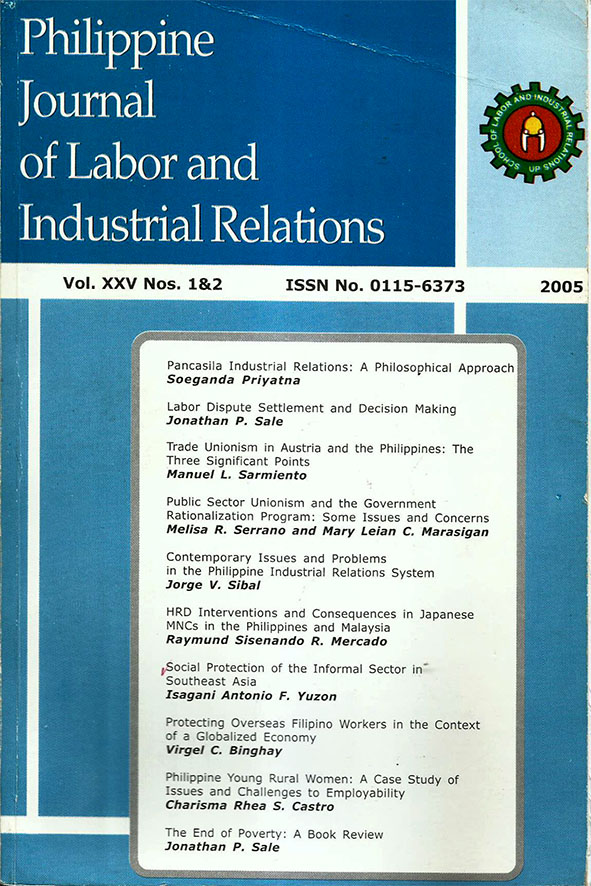Trade Unionism in Austria and the Philippines: The Three Significant Points
Abstract
The essence of trade unionism is to secure for the workers the best price (salary and wages) that can be obtained under prevailing market conditions. For the trade union to evolve into an economic, social and political force in the transformation of society, it must act deliberately as organizing centers of the working class in the broad interest of its complete emancipation. Towards this end, there must be a political party that will guide them in the pursuit of such role.
Thus, the first point is, the trade union movement should be united and adopt a radical and revolutionary perspective to be more effective as an economic, social and political force.
The second point is, in two countries under study: Austria and the Philippines, the political parties played significant roles in the transformation of the trade union movement. The political parties were hopeful in their struggle not only on trade union issues but also on political issues. The leaders in the trade union movements were also the leaders of the political parties.
And the third point is, nationalist industrialization played a historical role in creating adequate employment in Austria. It played an important factor in the successful harmonious IR system in the last four decades. In the Philippines, the attempts to industrialize the economy was derailed by the International Monetary Fund (IMF)-World Bank.
Strong political pressure from the trade union movement is urgent and necessary to pressure the Philippine government to veer away from subscribing to the IMF-World Bank.
Strong political pressure from the trade union movement is urgent and necessary to pressure the Philippine government to veer away from subscribing to the IMF-World Bank prescription of development.
The trade union movement in the Philippines should learn from and establish contact with the Austrian Trade Union Confederation (OGB), the social partner recognized by the Austrian government and the sole and exclusive bargaining agent in all collective negotiations.


